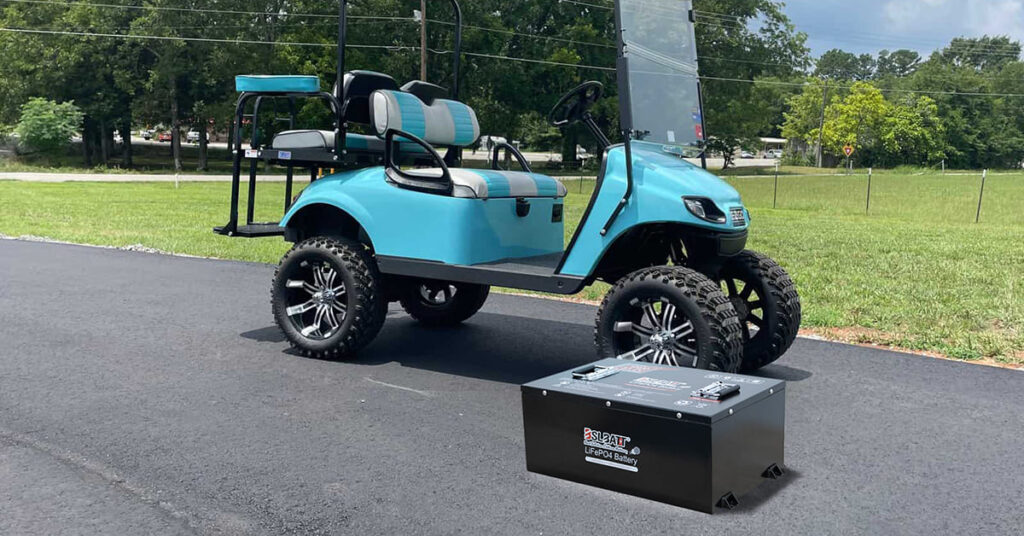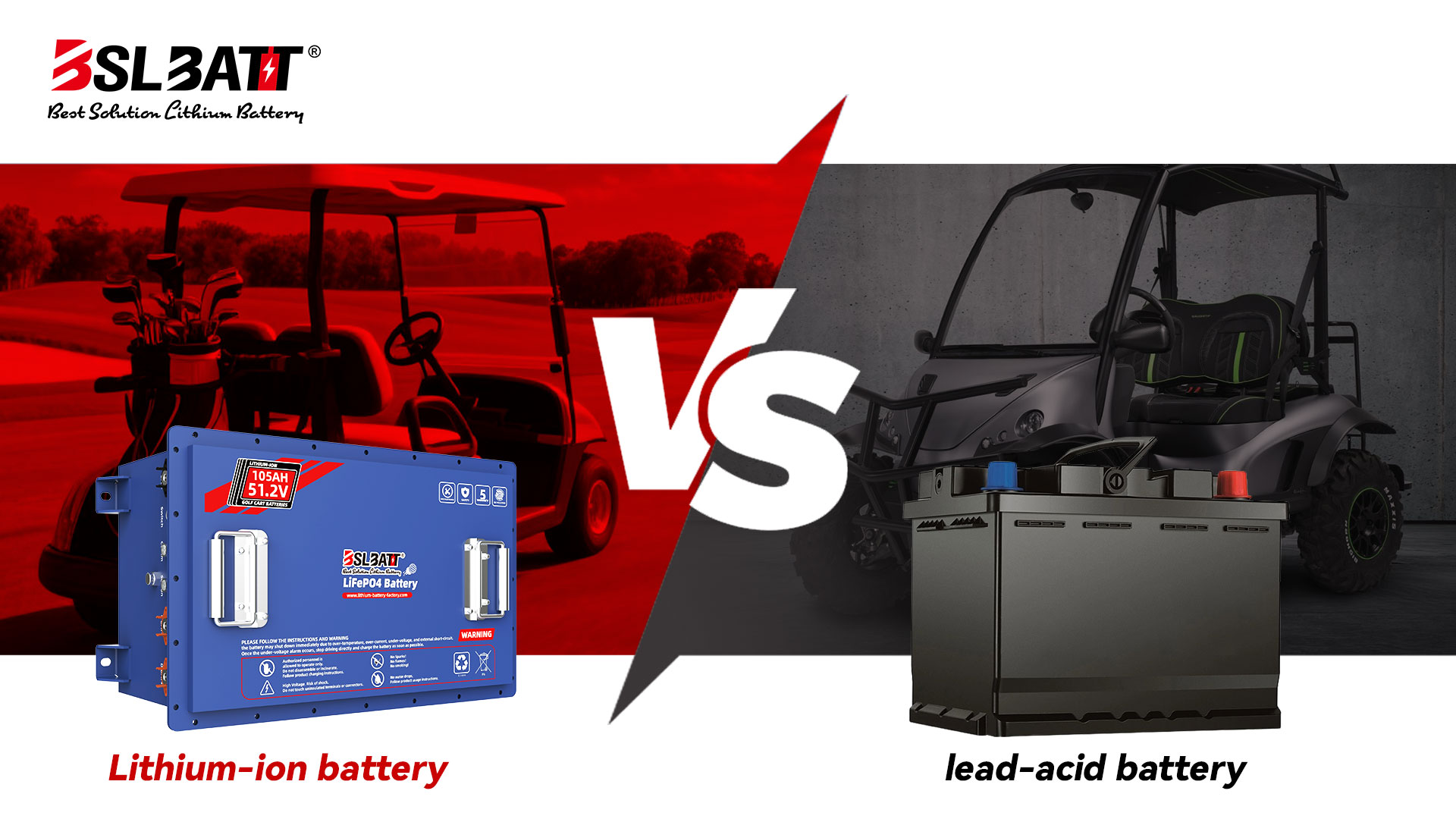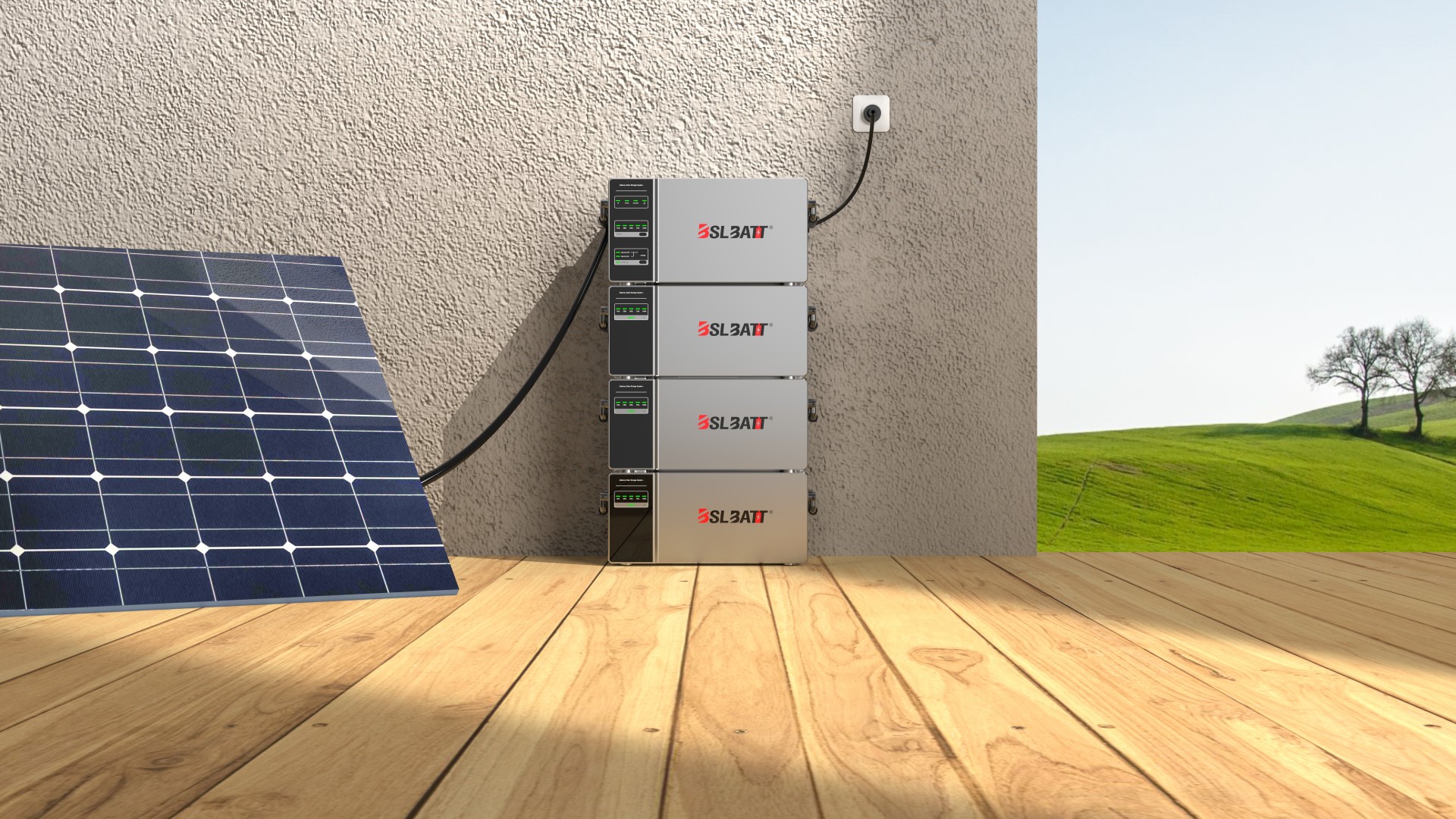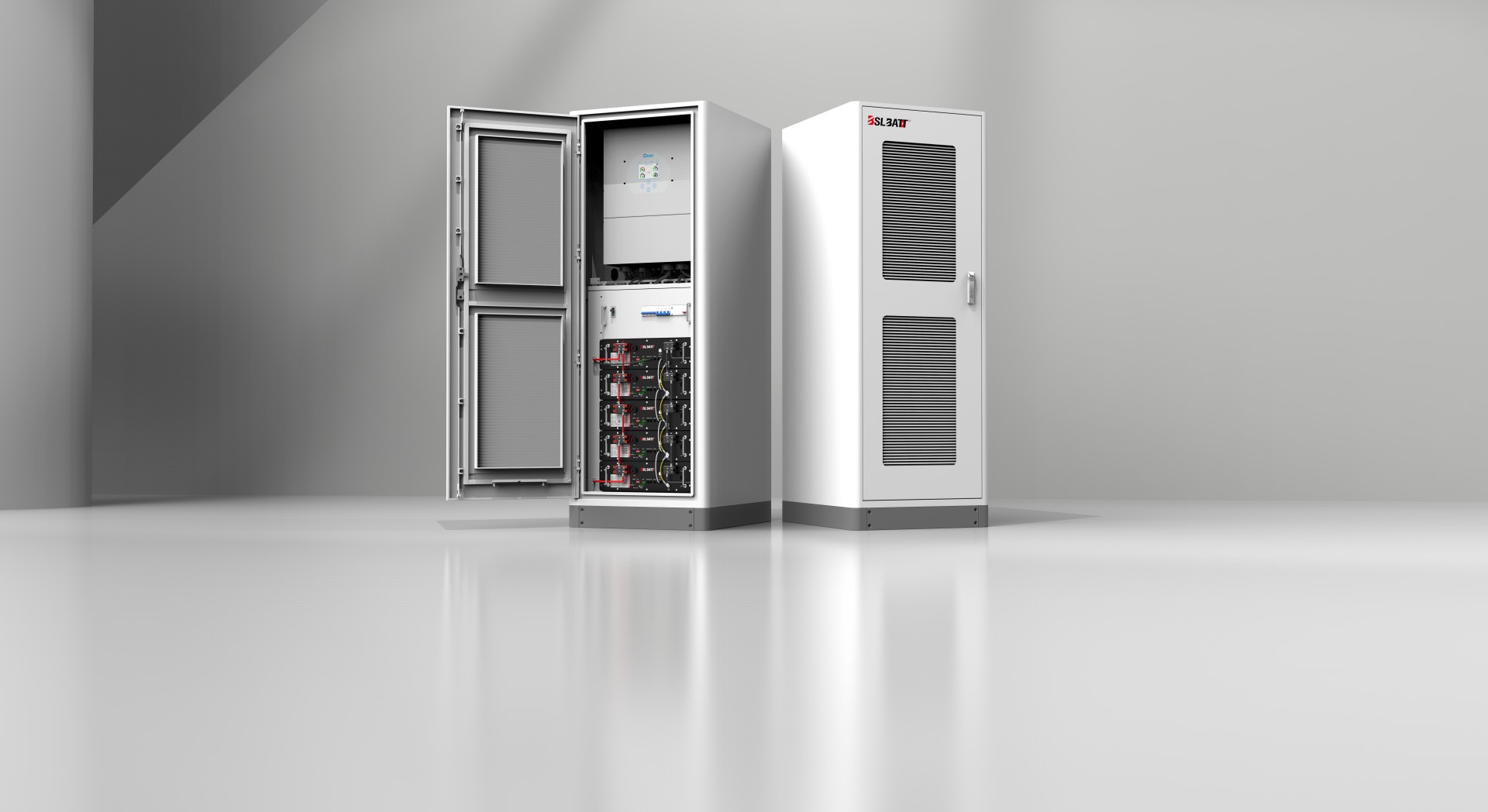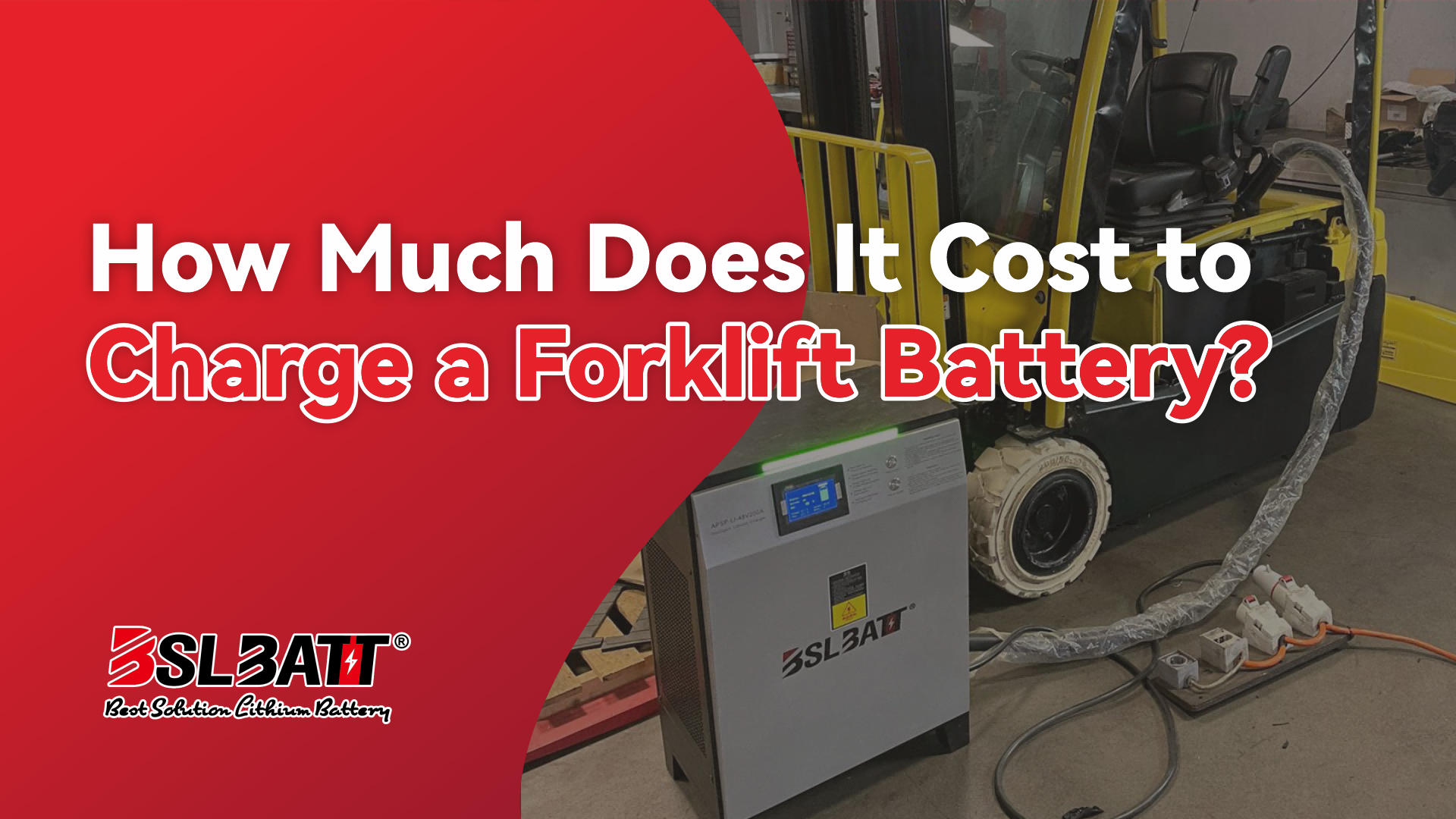Golf carts are becoming more and more popular in the United States, especially for golfers who have disabilities. Golf carts are also used for a variety of other purposes, such as transporting people and goods.
The battery is the most important component of a golf cart. Golf cart batteries come in two types: lead-acid batteries and Li-ion batteries. While lead-acid batteries still make up the majority of the golf cart market today, lithium-ion golf carts are becoming the primary source of power in the market as technology advances and costs come down!
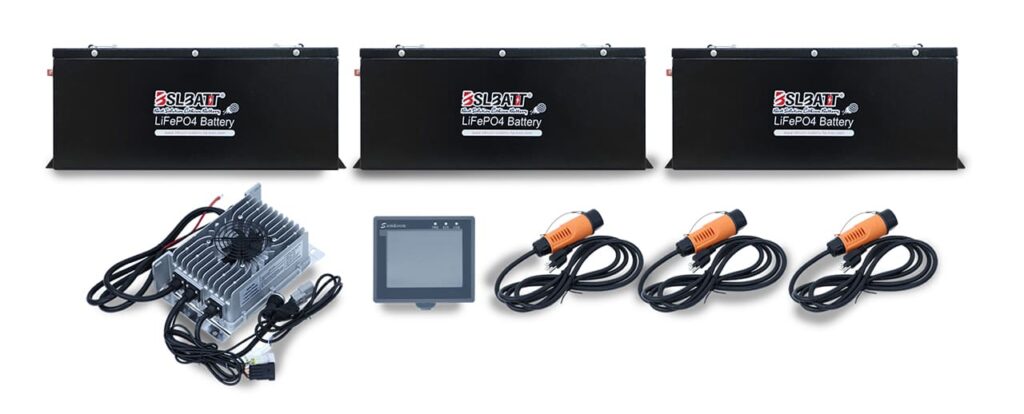
Well, once you have learned the differences between a lead-acid and lithium-ion battery, you will be better equipped to pick the battery–or battery bank–that is going to meet your needs over the years.
What You Should Know About Golf Cart Batteries?
A golf cart battery is a deep-cycle battery. Generally speaking, golf carts have a 36 volt or 48 volt motor, so you can use 6V, 8V, and 12V deep cycle batteries by connecting them in series and parallel to make up the right voltage. In applications like golf carts, where you need a larger battery capacity to power your low-speed powered vehicle, deep cycle batteries can provide stable voltage and larger power for a long time, making them ideal for applications like golf carts.
Due to the specific use scenario of golf carts, this requires that the batteries do not last too long between charge/discharge cycles and cannot be replaced too often. Lead acid batteries can typically only be depleted to about 50% of their capacity before the voltage drops too much and the golf cart dies. Lithium-based golf cart batteries can be fully charged in about two hours using a suitable charger, significantly faster than lead-acid batteries.
Golf carts rely on batteries for power, and lead-acid batteries lose their ability to hold a charge over time, the longer they take to fully recharge and continue to deplete the acid inside during use, and can be sluggish in terms of horsepower and other performance needs, and take up a lot of space on the car because of their bulky size.
Types of Golf Cart Batteries: Lithium Vs. Lead-Acid
Lead Acid Batteries
Lead-acid batteries are the most common and lowest-cost deep-cycle batteries with a long history of use in electric vehicles. They have been used in golf carts for decades and their storage capacity is sufficient to power a golf cart, meaning they are ideal for this purpose. They have been used in the golf cart market, which means they can be easily purchased and replaced when necessary. Some of the drawbacks of lead-acid batteries, however, make them inadequate for use in electric vehicles that travel more than about 10 miles per day, such as:
Although lead-acid batteries are relatively mature and known for their basic performance, they require regular maintenance to ensure proper performance. If not charged properly, lead-acid batteries can release acidic gases, which can be very dangerous to those nearby. Second, lead-acid batteries are slow to recharge, taking 12 hours to charge to 80% of capacity, Lithium-ion batteries can be fully charged in 3 hours. In addition, compared to lithium-ion batteries, lead-acid batteries are heavy, unsuitable for transportation, and have a short service life, requiring frequent replacement. Finally, the lead used in the production of lead-acid batteries can cause a lot of pollution in landfills. In addition, once discharged beyond a certain point, these batteries produce dangerous gases and should be safely discarded rather than recharged. These characteristics make them unsuitable for many applications that require lighter batteries or lower maintenance costs, but their simplicity and relatively low cost still make them an attractive solution for some markets.
In summary, while they are inexpensive, deep-cycle batteries commonly used in golf carts, they have some drawbacks that make them less desirable for use in golf carts than lithium-ion batteries.
Lithium ion Battery
When choosing between lithium batteries and lead-acid batteries for your golf cart, there are many different factors to consider, including cost, weight, performance, and the environment. Lithium batteries are more expensive than lead-acid batteries, but they do have several advantages over them that make them attractive for certain situations.
Cost: The biggest disadvantage of lithium batteries is the much higher cost compared to lead-acid batteries. In most cases, battery prices are around 3 to 5 times higher than lead-acid batteries.
Weight: Because lithium batteries are made up of lighter subcomponents (lithium is much lighter than lead), they can offer significant weight savings in comparison to other types of rechargeable batteries.
Maintenance: One major advantage to Lithium batteries is they do not need any golf cart battery service at all, while Lead Acid batteries must be checked and maintained on a regular basis.
Performance: Lithium-ion batteries do not suffer from a “memory effect” like some other types of rechargeable batteries do. This means that you can charge a lithium-ion battery at any time without damaging it or significantly reducing its lifespan. Lithium is also able to maintain its output voltage across various charge levels, which means that as a lithium battery charges it will provide the same power as it does when it’s fully charged. Some other types of rechargeable batteries will reduce their output voltage over time, so these batteries may not be ideal for golf carts.
Not only does an investment in a lithium battery pay for itself over time, there are also major savings in reduced electric bills, maintenance costs, and potential repairs that will need to be made on heavier lead-acid golf cars. If you are an avid golfer looking to power a number of devices and/or appliances on your rig, and you are not concerned with the way that you are using them, or whether or not they are going to die, lithium-ion batteries are probably going to win the day.
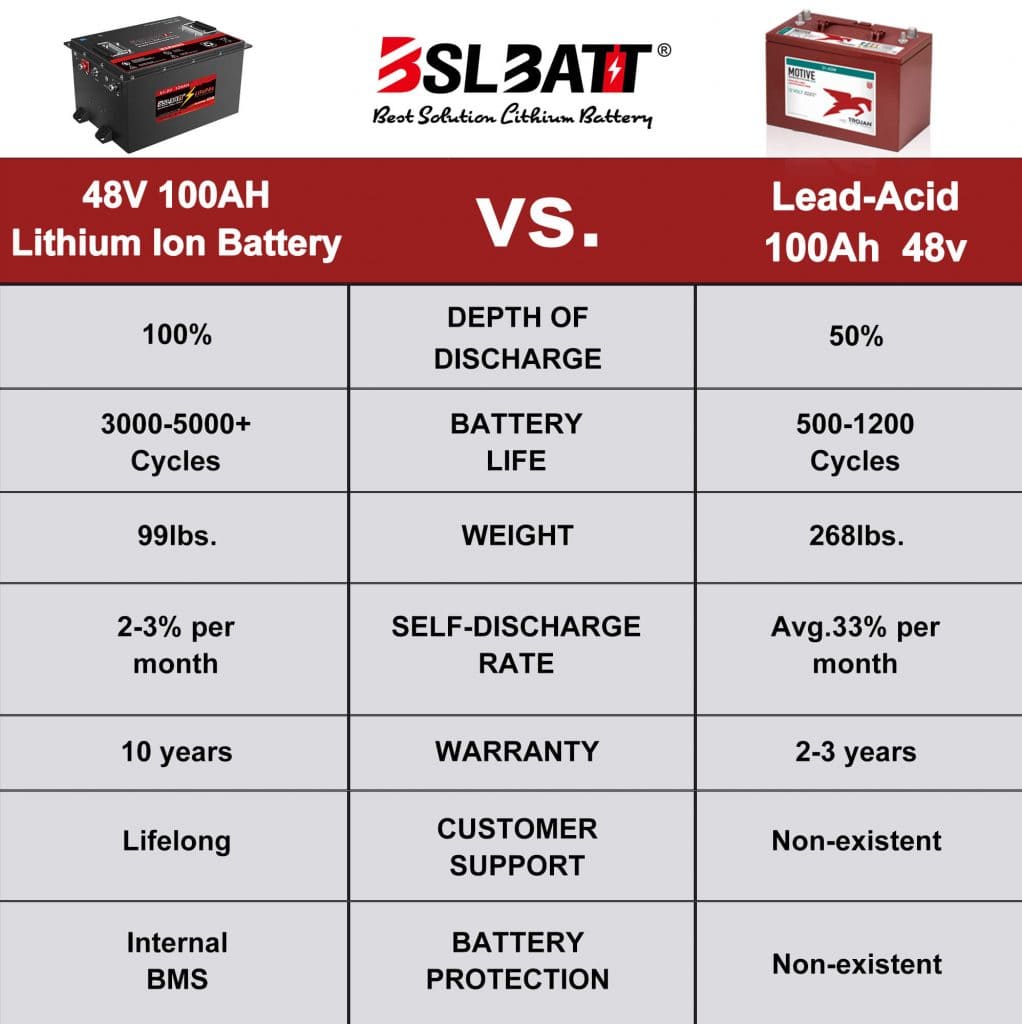
Can I Use BSLBATT LiFePO4 Batteries in My Golf Cart?
You can use BSLBATT LiFePO4 batteries in your golf cart. However, there are a few considerations to keep in mind.
First, confirm what voltage your golf cart motor is, you can check your voltage range by checking your golf cart specification book or google search, most golf carts are 36V or 48V. then, choose the right BSLBATT golf cart LiFePO4 battery, if your golf cart voltage is 48V, then you can choose 4 12V Li-ion deep cycle batteries or one 48V Li-ion battery.
Traditional lead-acid batteries can make a lightweight, nourishing golf cart feel ridiculously heavy, and as the batteries heat up and lose charge during golf cart use, they also lose overall capacity (which means the slower your cart goes and the less torque it has, the lower the charge level of the battery), whereas BSLATT lithium-ion golf cart batteries use LiFePO4 cells, which have many advantages, such as longer life, significantly less weight, increased efficiency and lower overall cost.
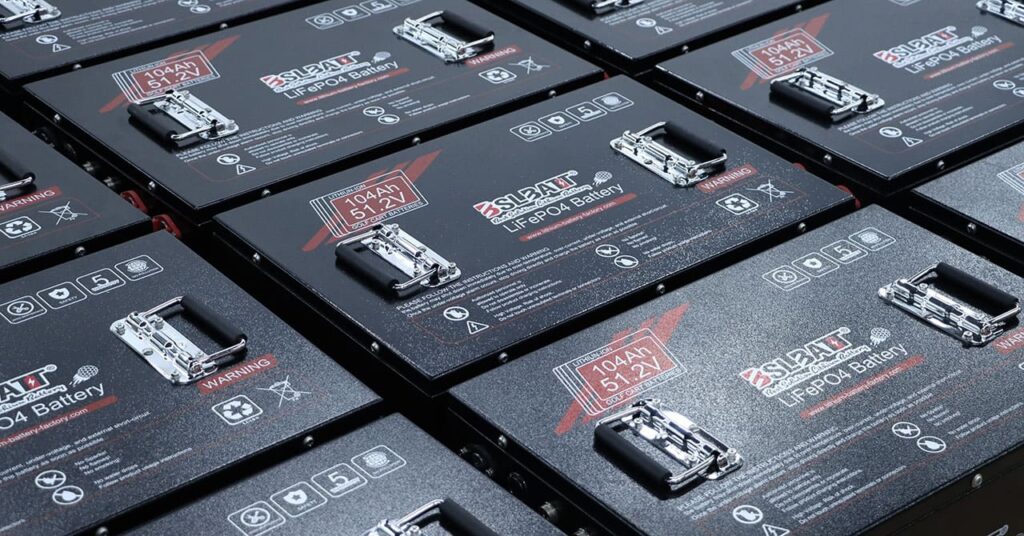
BSLBATT’s lithium-ion golf cart batteries may be recharged 3,000 to 5,000 times in their lifetime, while ordinary lead-acid batteries are only recharged a total of 1,000 times. To use a BSLBATT lithium deep cycle battery in your golf cart, simply remove the lead-acid battery, replace it with a lithium battery of the corresponding voltage, reconnect the wires and secure the mounting bracket to complete the installation. Our batteries can be charged with the standard charger in the cart, but for the best performance, you need to choose a lithium battery and charger that can be loaded or can be loaded with the correct algorithm. bslbatt recommends several chargers including the Lester Summit Series 2, Delta-Q IC Series, Delta-Q Quiq Series, and Pro Charging Systems Eagle Performance.
Replace Your Lead-Acid Golf Cart Batteries With Lithium-Ion.
No one interrupts an ongoing golf cart activity because the battery is running out of juice, so lithium-ion golf cart batteries with greater capacity and longer life are gaining more and more acceptance.
BSLBATT Lithium batteries are an excellent choice for powering your golf cart because they provide a long running time while minimizing maintenance needs and saving you money.
If you’re considering switching from lead-acid to lithium batteries and are ready to make the move right away, check out our golf cart lithium battery models.

